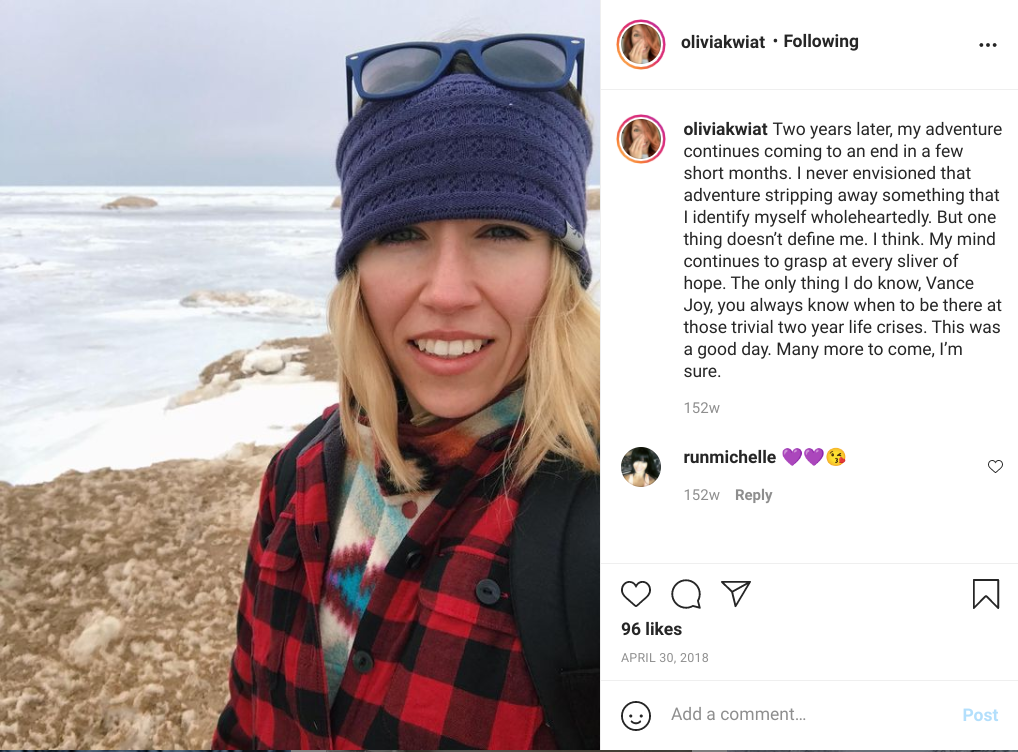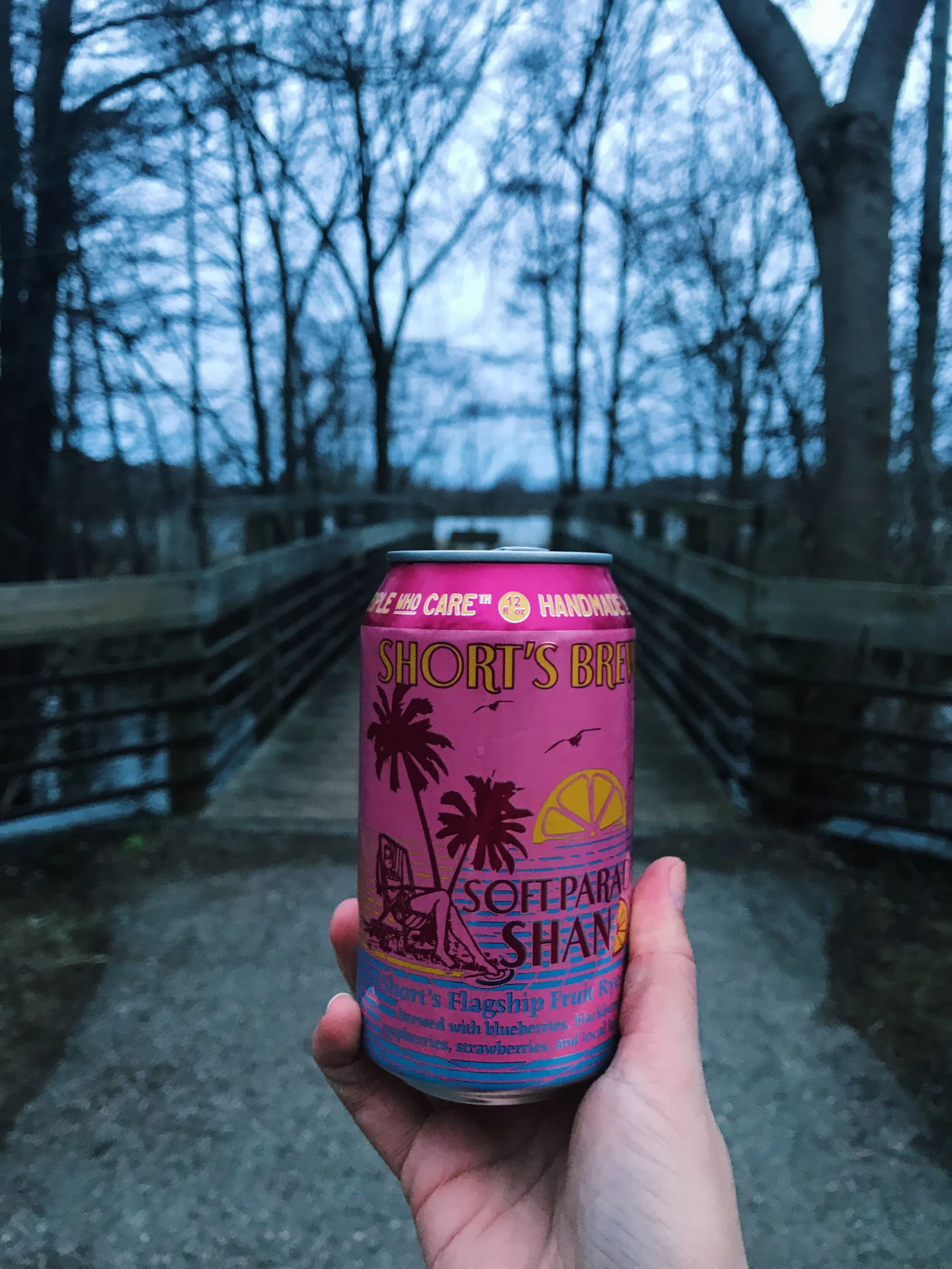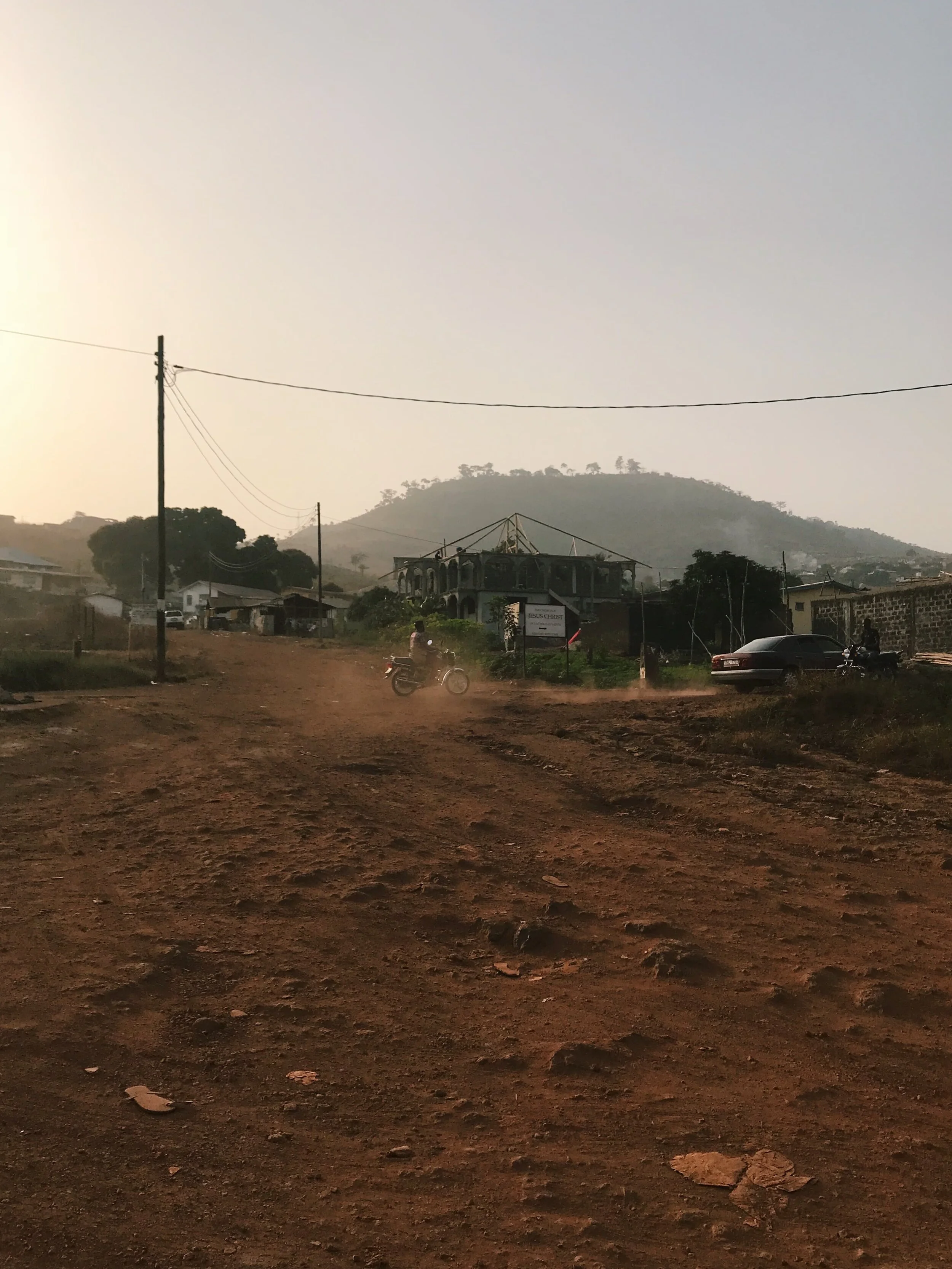Curbed, Part 1:
“I don’t think you should ever run again,” said my orthopedic spine surgeon. Those words cut so deep the pain was visceral. My eyes blurred with tears and I took a few deep breaths to compose myself. Why? How? Why me? I needed him to carefully explain how he arrived at the news that I would not accept. Despite years of treating my body as in the best way possible with good nutrition, cardiovascular and muscular conditioning, it felt like it was giving up on me.
I felt betrayed.
Unable to run, I spent most of my time walking and enjoying shandies, until walking became unbearable due to the pain. Gallup Park, Ann Arbor, MI, April 2018.
A few months before that nightmare prognosis, I was stationed in Sierra Leone on rotation for my master’s degree. During a local, friendly game of soccer, I fell on my back. I laughed at myself and the locals laughed at me. The game continued joyfully. When I woke up the next morning, I was paralyzed. Spasms crippled my body. I crawled and dragged myself out of my room to call for help. My need for urgent medical care would not be met in this third world country. The nearest radiology was hours away by dirt roads and I would not be able to make the trip.
One of my most favorite photos from Sierra Leone. The sun was always beaming, the humidity so thick one could visually see it, and the sand burnt orange. January 2018.
When I returned home to the luxuries of modern patient care, I spent weeks seeing a chiropractor and physical therapist. The pain was unbearable as it contorted my body to the right. It was a freak response by my body--a body I barely knew any more. Upon waking up one particularly bad morning, I felt tingles in my left foot that progressed into loss of sensation that ultimately progressed into loss of motor movement. Within hours I was booked for an urgent discectomy and laminectomy for a herniated disc, a surgery that removes a small portion of the bone and disc from the spine.
I woke up from surgery with immediate relief from pain. The pain-induced contortion resolved and I could stand straight. My first observation was noticing that I saw the world from a higher view. That was because I had become accustomed to walking hunched over for months. Suddenly, my hope to return to be a normal, active person was restored.
Telling a runner they should never run again is like telling a fish they have to learn to live out of the water they need to survive. At my post-operative follow up, my orthopedic spine surgeon treated me like a troubled fish. He pulled up post-op x-rays that showed a second weakening in my spine that could give out at any moment and require a more intensive surgery called a spinal fusion. Essentially, it was a case of very bad luck and family genetics. If I ever wanted to be active with my future children or live a life pain-free, I would need to stop any activity that included repetitive pavement pounding.



